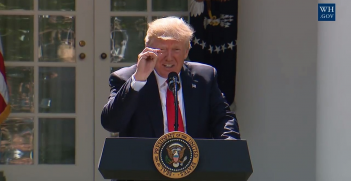Do We Need Environmental Subsidies for International Trade?

Balancing trade and environmental protection is an arduous task and finding the best path remains a challenge. Can free trade and subsidies for renewable energy co-exist?
The clash of interests between trade and the environment has long been a subject of heated debate in the international trade law community. Recently, it has become more prominent as most of the World Trade Organization (WTO) members are also signatories to the Paris Agreement, under which governments have agreed to limit climate change by voluntarily reducing their greenhouse gas emissions.
The global environment being a public good, it is subject to the global commons problem. It is also a representative case of externalities—created from a myriad of decentralised and independent decisions that lead to a devastating effect—and market failure. Such attributes warrant the need for government intervention through policy measures that enable the prevention of abuse or undersupply of such goods.
However, when international trade comes into the picture, establishing sovereign government policies for addressing global climate change becomes more complicated. This is particularly so when national policies with legitimate objectives to limit climate change are implemented in ways that distort the trade of foreign countries or competitive relations with foreign producers.
WTO and environmental protection
Current rules in the WTO have tried to maintain a difficult balance between these conflicting interests, and have worked to ensure that the national measures introduced for environmental purposes are not implemented in ways that are trade-restrictive.
For example, the general exceptions clause of the General Agreement on Tariffs and Trade (GATT) related to public health and environmental protection measures have been applied quite rigorously to ensure that policy measures proclaiming to be green are not abused to serve underlying national trade protectionist purposes.
Recently, however, due to the rising exigencies of climate change, there has been active debate on the need for more policy space, particularly involving policy measures in the form of financial support for combating climate change. A growing number of complaints are being filed to the WTO Dispute Settlement Body (DSB) regarding members’ government policies implemented to promote their renewable energy industries.
Some commentators have argued for the amendment of WTO subsidy rules to reinstate non-actionable subsidies for environmental purposes, based on the argument that the legal uncertainty created from the absence of concrete rules further constrains the policy space for WTO members to take legitimate climate change policy measures. On the other hand, others have suggested turning to a soft law approach as a more feasible alternative solution.
Observation of policy measures used by governments around the world for promoting renewable energy and the changing trends of investment in renewables both demonstrate that there are various forms of regulatory policies and fiscal incentives that are currently used that do not warrant direct government financial assistance.
Environmental subsidies
Advancements in renewable energy technologies have helped the shift to more competitive forms of financing, such as bidding/tendering and investment by private entities. In the current stage of development of the renewable energy industry, there is no need for government intervention to cover the initial fixed costs to set up a new industry.
Therefore, the argument for the re-introduction of green light subsidies to provide a carve out for the use of environmental subsidies cannot be justified if based on the argument of public goods. Apparently, renewable energy products and markets have become competitive enough that any support from the government may lead to market and trade distortions.
Renewable energy is no longer a public good, and neither is the technology developed for renewable energy production, which is proprietary to the company or country that has developed it.
The current WTO jurisprudence on renewable energy may be arguably becoming more environmentally-friendly as the WTO DSB issued a ruling that practically allows for more policy space for subsidies, in the form of feed-in tariffs for renewable energy-based power generation.
As a result, as long as the measure does not have a restrictive impact on trade, such as through local content requirements, feed-in tariffs for renewable energy generation projects may be considered consistent with current WTO subsidy rules. Taking into account the fact that feed-in tariffs are a common regulatory policy measure, the implications of the WTO ruling cannot be discounted in terms of its significance on the efforts made so far to balance the conflicting interests between trade and environment.
More importantly, it should be remembered that WTO subsidy rules are multilateral trade rules that need to be multilaterally beneficial to all of its members. However, a carve out for renewable energy subsidies would likely be utilised only by member countries that are advanced enough in renewable energy technology. Not all members may benefit from the new rules, and thus lack legitimacy and justification.
In addition, there is also the possibility that newly allowed use of environmental subsidies may be abused as a disguised form of protectionism, leading to a surge in trade remedy measures targeting renewable energy-related products and policy measures.
Such a trend is already becoming increasingly evident in the present world of unilateral trade remedies, which is an undesirable state of play when the current multilateral trading system is already under threat from the strengthened forces of unilateralism.
Hyo-young Lee is an assistant professor at the Korea National Diplomatic Academy.
This article is published under a Creative Commons Licence and may be republished with attribution.





